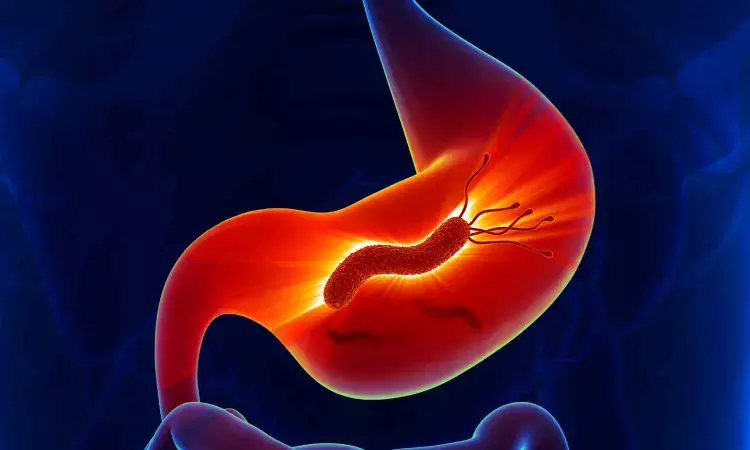- Home
- Medical news & Guidelines
- Anesthesiology
- Cardiology and CTVS
- Critical Care
- Dentistry
- Dermatology
- Diabetes and Endocrinology
- ENT
- Gastroenterology
- Medicine
- Nephrology
- Neurology
- Obstretics-Gynaecology
- Oncology
- Ophthalmology
- Orthopaedics
- Pediatrics-Neonatology
- Psychiatry
- Pulmonology
- Radiology
- Surgery
- Urology
- Laboratory Medicine
- Diet
- Nursing
- Paramedical
- Physiotherapy
- Health news
- Fact Check
- Bone Health Fact Check
- Brain Health Fact Check
- Cancer Related Fact Check
- Child Care Fact Check
- Dental and oral health fact check
- Diabetes and metabolic health fact check
- Diet and Nutrition Fact Check
- Eye and ENT Care Fact Check
- Fitness fact check
- Gut health fact check
- Heart health fact check
- Kidney health fact check
- Medical education fact check
- Men's health fact check
- Respiratory fact check
- Skin and hair care fact check
- Vaccine and Immunization fact check
- Women's health fact check
- AYUSH
- State News
- Andaman and Nicobar Islands
- Andhra Pradesh
- Arunachal Pradesh
- Assam
- Bihar
- Chandigarh
- Chattisgarh
- Dadra and Nagar Haveli
- Daman and Diu
- Delhi
- Goa
- Gujarat
- Haryana
- Himachal Pradesh
- Jammu & Kashmir
- Jharkhand
- Karnataka
- Kerala
- Ladakh
- Lakshadweep
- Madhya Pradesh
- Maharashtra
- Manipur
- Meghalaya
- Mizoram
- Nagaland
- Odisha
- Puducherry
- Punjab
- Rajasthan
- Sikkim
- Tamil Nadu
- Telangana
- Tripura
- Uttar Pradesh
- Uttrakhand
- West Bengal
- Medical Education
- Industry
Long-Term H. pylori Eradication Effectively Reduces Gastric Cancer Risk: Study

A recent study involving nearly 50,000 individuals provided strong evidence that eradicating Helicobacter pylori (H. pylori) infection leads to a significant long-term reduction in gastric cancer risk.
The study followed a total of 48,530 Japanese men and women aged 40 to 74 from four large cohort studies, over an 8-year period from 2010 to 2018. The history of H. pylori eradication were self-reported at the start of the study, and blood tests were used to measure anti-H. pylori IgG antibody levels and pepsinogen (PG) levels, which serve as indicators of current or past infection and gastric atrophy.
Over the course of the follow-up period, 649 cases of gastric cancer were diagnosed. This research analyzed the data using Cox proportional hazards models to determine cancer risk based on infection and eradication history.
The results showed a stark contrast in cancer risk among the individuals who had never been infected, and those infected but untreated, and those who had undergone eradication therapy. Participants who tested positive for H. pylori and/or had abnormal PG levels without any record of eradication treatment, had the highest risk. They were nearly 6 times more likely to develop gastric cancer compared to those who tested negative on both H. pylori and PG tests.
The risk trajectory changed over time for those who had undergone H. pylori eradication before the study began. In the short term, within the first year following eradication, there was a temporary increase in gastric cancer risk (HR: 1.74, 95% CI: 1.18–2.57), which may reflect detection of pre-existing, subclinical cancers during follow-up testing.
From one to under six years after treatment, the risk of gastric cancer dropped close to baseline (HR: 0.81, 95% CI: 0.59–1.11), and for those whose eradication occurred six or more years prior, the risk was cut by more than half (HR: 0.44, 95% CI: 0.28–0.68). Overall, this study reinforces the need for early detection and timely treatment of H. pylori infection, especially in countries where gastric cancer remains a leading cause of cancer death.
Source:
Ono, A., Tanaka, S., Sawada, N., Goto, A., Tsugane, S., Muraki, I., Yamagishi, K., Sasaki, Y., Abe, Y., Kayama, T., Ueno, Y., Saito, E., Yamaji, T., Iwasaki, M., & Inoue, M. (2025). Helicobacter pylori eradication and gastric cancer prevention in a pooled analysis of large-scale cohort studies in Japan. Scientific Reports, 15(1), 21307. https://doi.org/10.1038/s41598-025-00713-z
Neuroscience Masters graduate
Jacinthlyn Sylvia, a Neuroscience Master's graduate from Chennai has worked extensively in deciphering the neurobiology of cognition and motor control in aging. She also has spread-out exposure to Neurosurgery from her Bachelor’s. She is currently involved in active Neuro-Oncology research. She is an upcoming neuroscientist with a fiery passion for writing. Her news cover at Medical Dialogues feature recent discoveries and updates from the healthcare and biomedical research fields. She can be reached at editorial@medicaldialogues.in
Dr Kamal Kant Kohli-MBBS, DTCD- a chest specialist with more than 30 years of practice and a flair for writing clinical articles, Dr Kamal Kant Kohli joined Medical Dialogues as a Chief Editor of Medical News. Besides writing articles, as an editor, he proofreads and verifies all the medical content published on Medical Dialogues including those coming from journals, studies,medical conferences,guidelines etc. Email: drkohli@medicaldialogues.in. Contact no. 011-43720751


